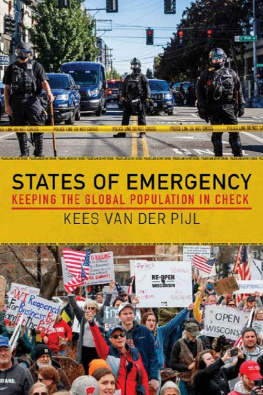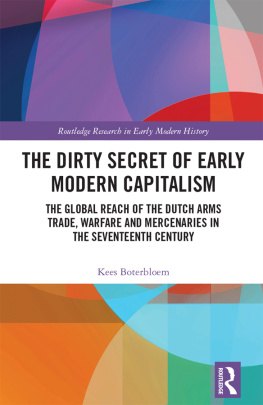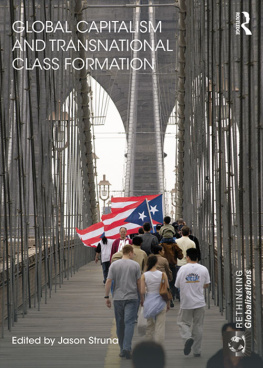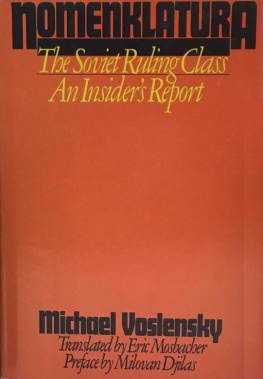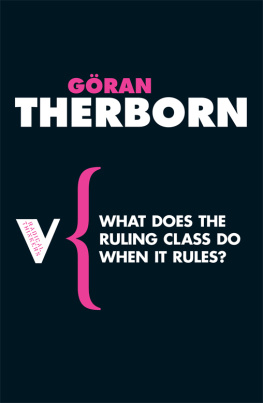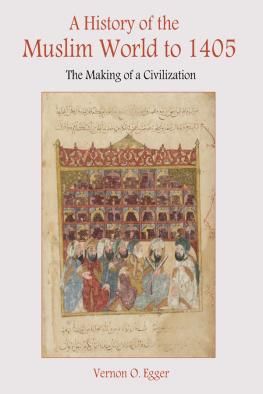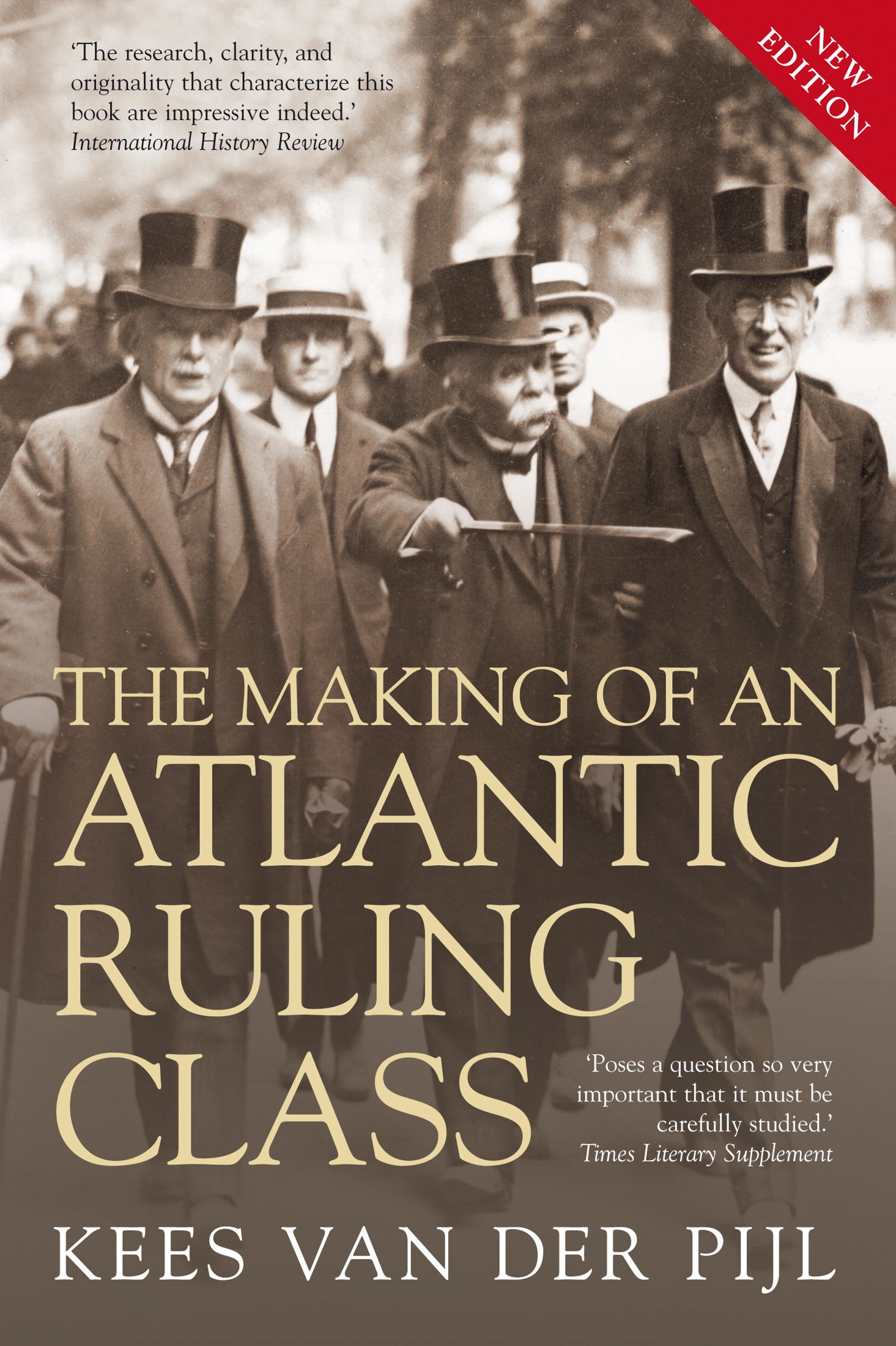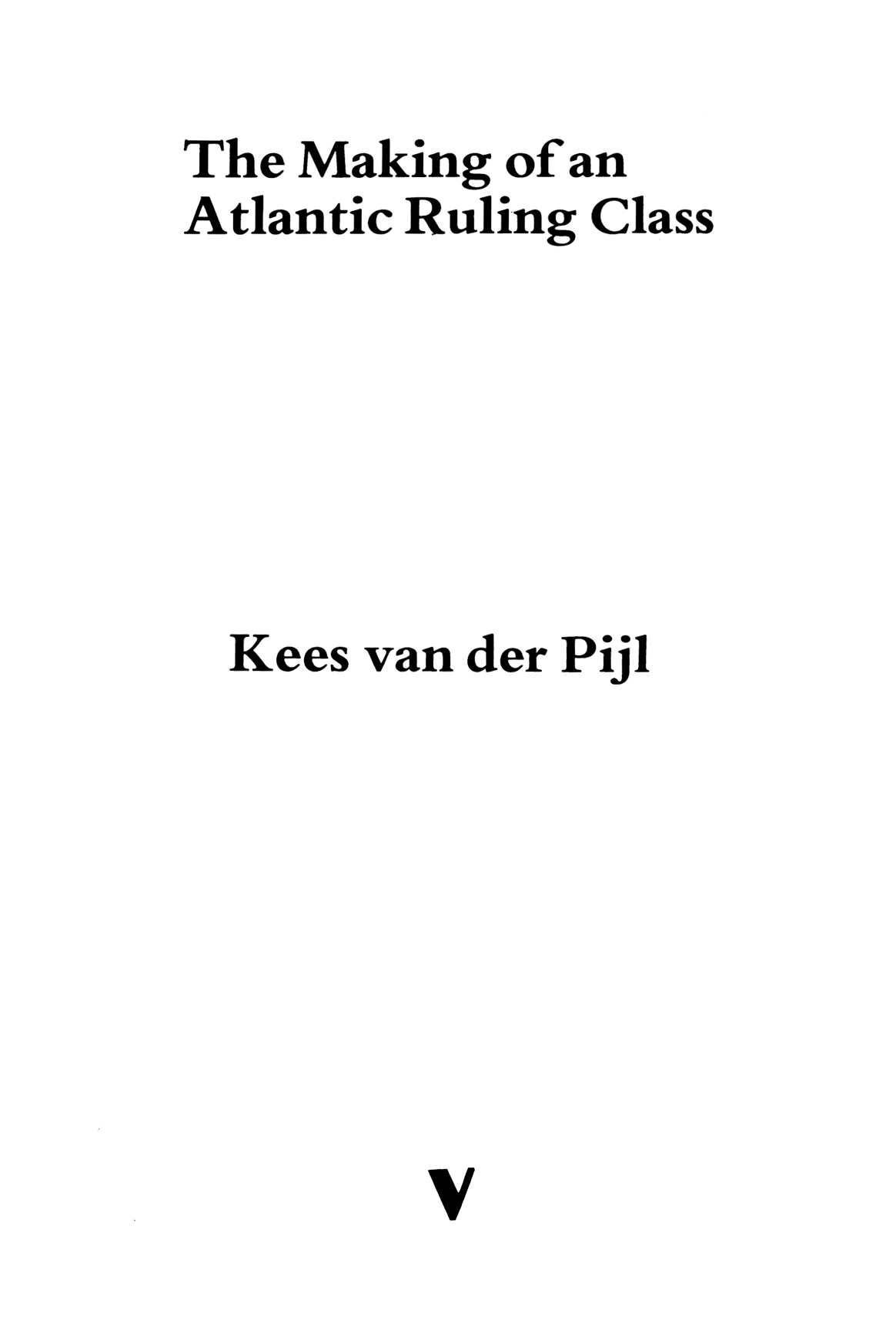Kees van der Pijl was born in 1947 in Dordrecht, the Netherlands. After completing his studies in law and political science at the University of Leyden, he became a staff member in the Department of International Relations of the University of Amsterdam in 1973. His publications include Een Amerikaans Plan voor Europa (Amsterdam 1978), dealing with the restructuring of the Western European steel industry under the Marshall Plan, and a collection of essays, Marxisme en Internationale Politiek (Amsterdam 1982).
British Library
Cataloguing in Publication Data
Pijl, Kees van der
The making of an Atlantic ruling class. 1. EuropeForeign economic relationsUnited States 2. United StatesForeign economic relationsEurope
I. Title
337.4073 HF1532.5.U5
First published 1984
Kees van der Pijl 1984
Verso
15 Greek Street London W1V 5LF
eBook ISBN: 978-1-84467-936-2
Trade Paperback ISBN: 978-1-84467-871-6
v3.1
For Kiek, Margreet & Frank
Classes are large groups of people differing from each other by the place they occupy in a historically determined system of social production, by their relation (in most cases fixed and formulated in law) to the means of production, by their role in the social organization of labour, and, consequently, by the dimensions of the share of social wealth of which they dispose and the mode of acquiring it. Classes are groups of people one of which can appropriate the labour of another owing to the different places they occupy in a definite system of social economy.
Lenin
Any general theory of classes and class formation must explain the fact that classes coexisting at any given time bear the marks of different centuries on their brow, so to speak that they stem from varying conditions. This is in the essential nature of the matter, an aspect of the nature of the class phenomenon. Classes, once they have come into being, harden in their mold and perpetuate themselves, even when the social conditions that created them have disappeared.
Joseph Schumpeter
Also, the chances of classes in a struggle will depend upon their ability to win support from outside their own membership, which again will depend upon their fulfilment of tasks set by interests wider than their own. Thus, neither the birth nor the death of classes, neither their aims nor the degree to which they can attain them; neither their cooperation nor their antagonisms can be understood apart from the situation of society as a whole.
Karl Polanyi
The most important political struggles of this troubled century have not been peripheral conflicts in the nineteenth-century manner. They have been systemic, ideological conflicts among national states as actors in and constituents of wider than national political systems. Their struggles have not been simply about the interests and the power of the separate nations but about the political organization and the ideological tendency of the wider systems.
Harold Van Buren Cleveland
Contents
Acknowledgements
This book, largely based on a doctoral dissertation presented in 1983, is a product of a research programme entitled International Division of Labour and Integration, in progress at the Department of International Relations of the University of Amsterdam.
This programme, which is concerned with the social forces involved in the internationalization of economic life and the successive international constellations of the capitalist world, started some ten years ago with an investigation into the origins of the Marshall Plan and the European Coal and Steel Community. I owe a debt to colleagues and students participating in the project, and more particularly to Ries Bode, whose ideas in several respects cleared the way for what is argued here. I also thank Meindert Fennema for his constant encouragement and critical support; Henk Overbeek, whose theoretical acumen and patient interest were of great help, notably concerning the British situation on which he is preparing a major study himself; and Gerd Junne, who supervised the writing of the dissertation. A special word of thanks should go to Joyce and Gabriel Kolko, whose Limits of Power was the source of so much insight and inspiration at the outset of our programme, and who during their stay in the Netherlands made many more stimulating suggestions with respect to the subject matter of this study.
Of the other people to whom I am indebted, Veit Baader, Andr Gunder Frank, Dany Jacobs, Andr Mommen, and Kurt Tudyka took the trouble of putting their remarks on paper, and always to my benefit.
Nobody, however, aided the writing of this book more than Mike Davis, my editor at Verso. His able suggestions for a reorganization and expansion of the original thesis, and his profound understanding of its contents and implications, were an invaluable stimulant during the odd-year in which additional research was carried out and the manuscript was finalized.
None of those mentioned can be blamed for the remaining deficiencies of this book, for which I alone am responsible.
Amsterdam, May 1984
Kees van der Pijl
Introduction
This study investigates the process of capitalist class formation in the North Atlantic area in the period between the launch of Woodrow Wilsons Crusade for Democracy in 1917 and the world economic crisis of 197475. The crisis, from which capitalism so far has found no way out, and which in the absence of a clear revolutionary dynamic has only raised the level of violence in the international system to a point where the threat of nuclear annihilation seems all too real, terminated an era of American hegemony and Atlantic integration. In this era, the specific form and content of the internationalization of capital allowed the bourgeoisie in the North Atlantic area to regroup and develop a series of comprehensive concepts of control by which it could reinforce its hegemonial position both nationally and, in the confrontation with extra-Atlantic challenges, internationally. From either perspective, the dominant feature of the era of Atlantic integration was the supranational framework in which bourgeois class rule was organized and legitimized: Atlantic, European, or various combinations of the two.
Class formation in the North Atlantic area, understood as a continuous process of redefining the coordinates of bourgeois rule in response and anticipation to the dynamic of the internationalization of capital, passed through several stages, reaching well back into the nineteenth century. Beginning with the post-Civil War American railway boom, an Atlantic circuit of money capital developed, the epicentre of which at the time of World War One shifted from London to New York. Interrupted and partially disorganized in the 1930s and 1940s, when national productive capital reasserted its preeminence at the expense of internationally circulating capital, the Atlantic circuit was restructured after the war in the context of the Pax Americana . As international finance capital, in which the circuits of money capital and productive capital were tendentially integrated at the Atlantic level, the spread of American multinational firms and banks opened a third, synthetic stage of the internationalization of capital.
In each stage, specific trans-Atlantic configurations of interests crystallized, which were acted upon by a segment of the ruling class formulating its concept of control in terms of the requirements of the capital fraction specifically engaged in the internationalization process. Thus, the liberal-internationalist bourgeoisie associated with the development of an Atlantic circuit of money capital at the turn of the century developed its specifically Atlantic cohesion around a concept of control reflecting the vantage-point of the money capitalist. On the other hand, the bourgeoisie protecting industry in a national (or, at most, regional) context in the interwar years carved out sphere-of-interest arrangements with its trans-Atlantic counterparts primarily from a productive-capital standpoint. At the outset of the actual era of Atlantic integration coincident with Lend-Lease and Roosevelts Atlantic Charter this fraction of the bourgeoisie, which I term the state-monopoly tendency , was counter-posed in most West European nations to the liberal-internationalist fraction as contending poles of bourgeois hegemony.


